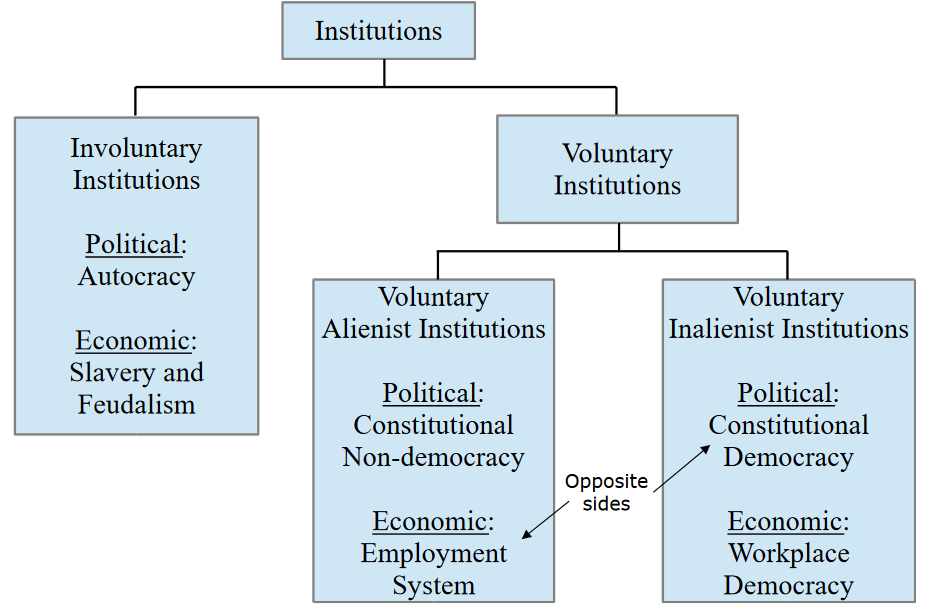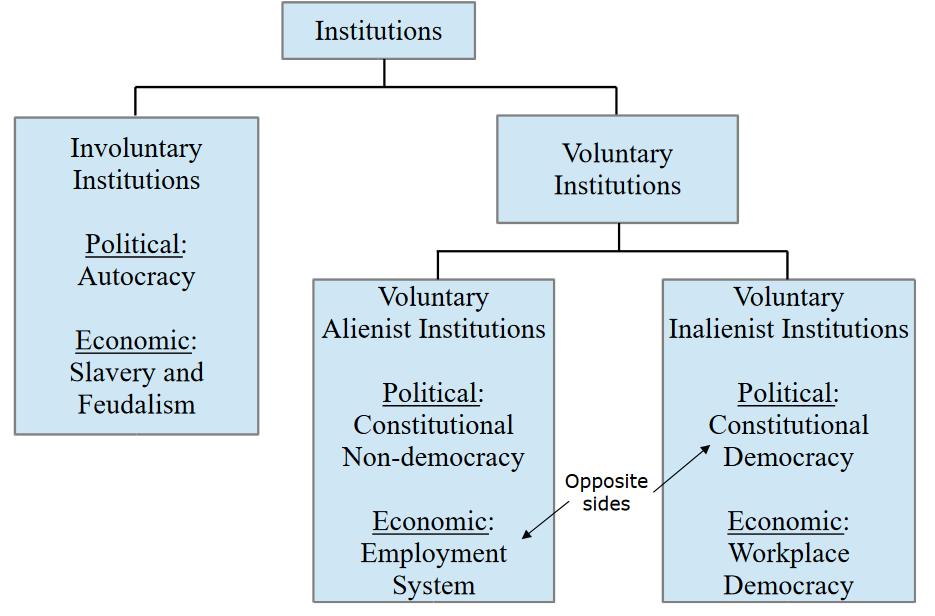Socialism vs capitalism is a false dichotomy. There are other alternatives like economic democracy or mutualism where all companies are democratic worker coops. There are other critics of capitalism besides Marx such as the classical laborists like Proudhon and their modern intellectual descendants like David Ellerman
The employer-employee contract
It violates the theory of inalienable rights that implied the abolition of constitutional autocracy, coverture marriage, and voluntary self-sale contracts.
Inalienable means something that can't be transferred even with consent. In case of labor, the workers are jointly de facto responsible for production, so by the usual norm that legal and de facto responsibility should match, they should get the legal responsibility i.e. the fruits of their labor
While many socialists supported worker coops in the interim, an economy of exclusively worker coops comes more so from the classical laborists such as Proudhon.
After capitalism,
- All firms should be democratic worker coops. The legal system would recognize the inalienable right to workers' control.
- Land and natural resources should be collectively owned with revenue from private use of this collective property going out as a UBI. The atmosphere is included and any carbon fees are included.
- Pools of collectivized capital democratically controlled by workers in member worker coops. Each worker coop leases all its capital from the pool
Land value tax would solve this when combined with a UBI from the revenue it generates
Yeah UBI would solve this. This might be a criticism of contemporary capitalism, but it isn't a critique of capitalism more broadly because in principle, capitalism can have a UBI.
More fruitful anti-capitalist critiques emphasize workplace authoritarianism, the employer's appropriation of the whole product of a firm, monopoly power associated with private ownership especially of land and natural resources, and inability to effectively allocate resources towards public goods
This was more explicit when it was called a master-servant relationship before employer-employee terminology became more common
Not rightfully so
Doing what you're told does not relieve you of responsibility for the results of your actions
What do you mean by valid input?
Both capital and labor are causally efficacious in production. Why would people use them otherwise? Capital is also the fruits of past labor, so denying capital remuneration denies remuneration to the workers that created that capital @asklemmy
Reasons for anticapitalism
- It violates inalienable rights to democracy and to get the positive and negative fruits of their labor, which flow from the principle that legal and de facto responsibility should match. In the firm, the employees are de facto responsible, but employer is held solely legally responsible.
- It violates the equal claim to natural resources everyone today and future generations have. It, instead, incentivizes ruining the environment


I'm a leftist as well. The paper argues that the non-democratic liberals are wrong about the implications of liberal principles. It even goes further and makes an argument that coherent liberalism must also oppose capitalism, and capitalism is inherently non-democratic. By the end, the paper argues that a democratic economy controlled by workers is the only kind of economic organization compatible with liberalism. Capitalist liberalism is poison because it is incoherent
@sneerclub